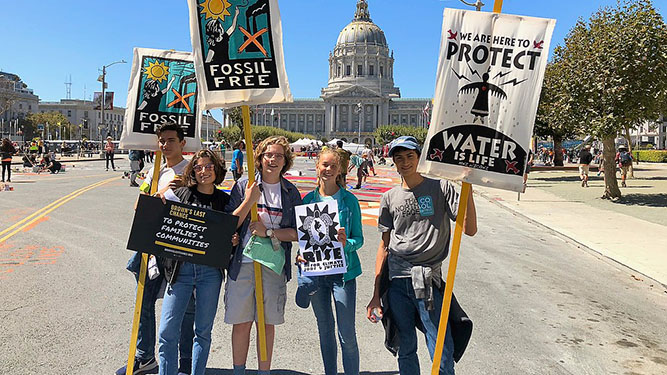From voting and protesting to signing petitions and donating money, activism can take on several forms. Campaigning for social change, however, follows essentially the same starting process. Before taking action, you’ll want to choose a cause, educate yourself, and make connections. These fundamental steps will serve you throughout your future as an activist.
Choose a Cause
The first step to becoming involved in activism is choosing a cause that you’re passionate about. Civil rights, environmental protection, education, and sensible drug policies are just a few of the options. You can commit to one issue or several, and many of the issues listed above are broad, meaning that there are several subsectors of a single issue that you could get involved in.
Activism for sensible policies around controlled substances and supplements, for instance, could include everything from supporting funding for research into the clinical value of traditional medicine, to advocating for novel botanicals like kratom. Your activism could also expand to supporting safe ways to purchase kratom or other botanicals or educating people on the effects of kratom.
Get Educated
After choosing a cause, get educated on that specific cause, as well as on the political process in your country, state, or municipality. While you could attend college and gain a degree in a related field, research can be done on your own too. Simply find relevant literature and begin reading. If you’re interested in sensible drug policies, for instance, read a guide on medicinal plants and herbs. Make sure to also look at policy proposals and decisions surrounding your cause.
The decisions made around causes depend on who is in power. Becoming familiar with the political process of your locale is essential to helping influence those decisions. If you’re in a country that votes for their leaders, you can vote. There are many other ways to get involved, however. These will be discussed further below.
Make Connections
In the same manner that you can network with working professionals for a job, you can network with other activists. Making these connections are essential to staying in the know, especially when it comes to local politics. While bigger, more popular issues may have a social media presence to follow, local issues may be confined to community events — many of which may have poor advertising, depending on financial resources. Reach out to more experienced activists to find out how you can become involved.
Take Action
Once you’ve found a cause you care about, educated yourself, and made some connections, it’s time to take action. There are myriad ways to take action and all of them are important. If one way isn’t for you, try another.
Volunteer
Perhaps one of the most well-known forms of activism, volunteering involves spending time unpaid on an activity that generally poses some benefit to society. Online hubs like VolunteerMatch allow you to do local or regional searches to find volunteer opportunities near you, as well as to search for organizations based on reviews or other factors.
Donate Time and Money
Donate time or money to the cause or causes that you’re passionate about. Set aside a few hours a week or a month to dedicate to the cause — however many you can commit to. If you don’t have much time to spare, donating might be a better option. Make sure to only donate to verified charities and organizations. This is a situation where making connections will come in handy. Ask your connections for legitimate places to donate your money.
Attend Legislative Sessions
If you live close to your state legislature, consider attending legislative sessions. You could go for issues you’re advocating for or against. Members of the public are often able to give testimonies at these sessions so you may wish to go prepared with a short speech. Make sure to read up on the bills in question for that day.
Likewise, attending city council meetings can be just as impactful. If the state capital is out of your way, stay local.
Boycott Companies You Disagree With
Boycotting companies whose practices you disagree with can be just as impactful as donating money. If a restaurant’s owners are against same-sex marriage, but you’re advocating for equality: consider boycotting the restaurant. If a makeup company tests its products on animals, but you’re protecting animal welfare: consider boycotting the company. In that same vein, you may wish to advocate for organic and fair trade makeup products, and protest against products containing many chemicals.
In addition to boycotting, you may also wish to reach out to these companies to discuss your disapproval of their practices.
Attend Protests and Community Events
Protesting is a vital form of activism that showcases the power of collective action and lays the groundwork for change. Through protesting ordinary citizens have a chance to have their voices heard. This is important as many voices are often more impactful than one.
If you live in a moderately sized city or town, there’s a good chance protesting is a common form of community activism there. Check Facebook and other social media channels to find events near you. Use your connections to find events that may have less online advertising.
Sign Petitions
The simplest definition of a petition is a request to do something. This form of activism, like others, is often directed at a government official or other public entity. Similar to protesting, petitions have power in numbers. Generally, the more signatures collected, the more powerful the petition is. While petitions may not directly create change, they can serve as the groundwork for it. Moreover, they’re an important aspect of the democratic process.
Petitions may be held online, through websites like Change.org — or in person, via a clipboard, pen, and paper.
Stand Up to Discrimination When You See It
Being an activist requires a 24/7 commitment to social change and justice. This doesn’t mean constantly going to protests, signing petitions, and attending legislative sessions. Rather, it means that you commit to standing up to discrimination when you see it, whether at work, in a parking lot, or any other time throughout your day.
Whatever your cause or goal, activism that has a real impact can be within reach. By focusing your efforts, doing your research, connecting with others who share your passion, you can become more aware of all the activities you can support or participate in. Whether you support campaigns and organizations with your money, time, expertise, or influence, or you opt to go straight to the voters and institutions that drive policy, your journey in activism can be as unique and personal as the cause you choose to support.






